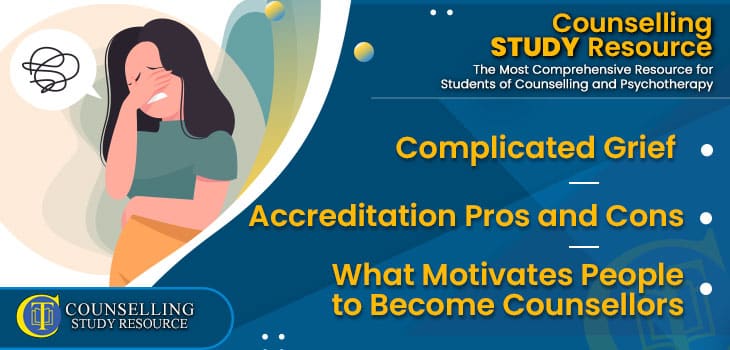See Counselling Skills Used in Real Sessions by Qualified Therapist
Real Sessions – Real Presentations – Real Skills
Gain the competence and confidence to use counselling techniques effectively!

In Episode 279 of the Counselling Tutor Podcast, your hosts Rory Lees-Oakes and Ken Kelly are back with this week’s three topics:
Complicated Grief
As a student on placement, if you recognise complicated grief, you will be expected to refer that client. In this section, Rory and Ken identify some of the differences between ordinary grief and complicated grief:

Real Sessions – Real Presentations – Real Skills
Gain the competence and confidence to use counselling techniques effectively!
In this section, Rory and Ken discuss some of the pros and cons of becoming an accredited counsellor, and things to consider when making your own decision:

On-demand access to a rich lecture library covering theory, skills, and professional development for counselling students—Mapped to the UK awarding body criteria
“The Student Library has been BRILLIANT, I can’t recommend it enough!
It has been a lifeline in helping me prepare for practice and my first clients. If you’re considering it, go-for-it, it’s absolutely worth it!”
Kelly – Graduated and now in practice.
In this week’s ‘Practice Matters’, Rory speaks with counselling student Sinead Oskun about her journey and motivations to become a counsellor. Today, this section of the podcast briefly mentions child bereavement.
The key points of this discussion include:
Complicated Grief

Get on-demand Certified CPD that is implementable in your practice
